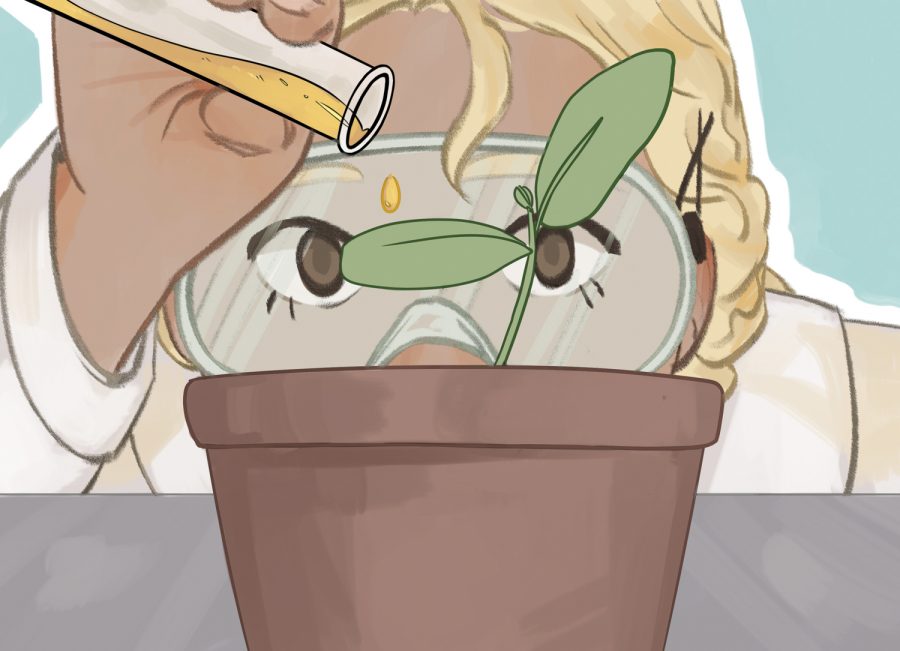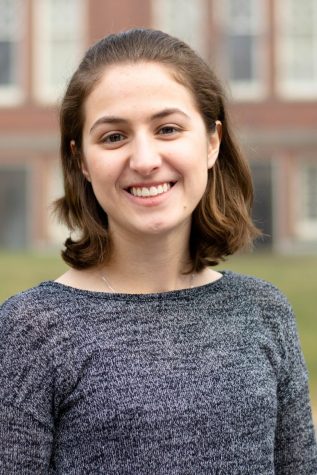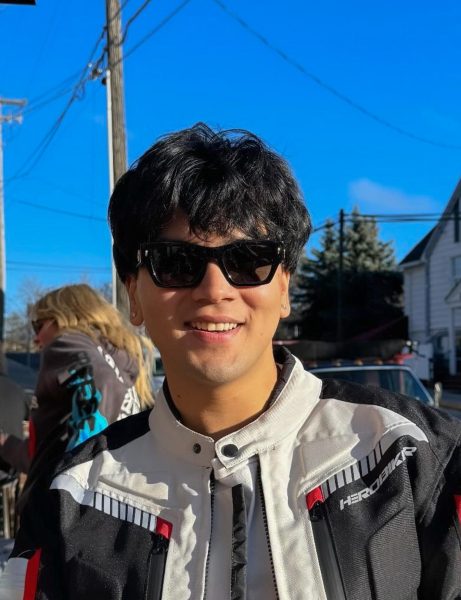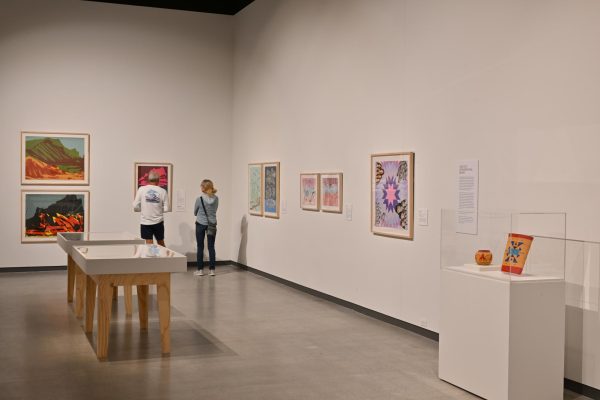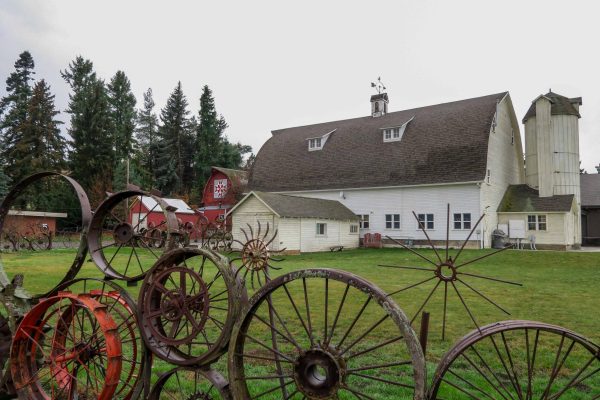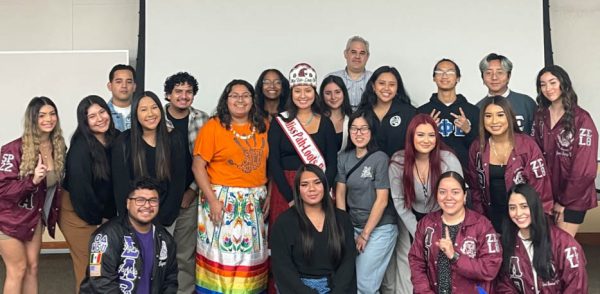‘I see the world through a science lens’
Evergreen columnist spent childhood doing science projects; learned to merge science and writing
Find the compromise — whether it’s between science and writing, or your passions and your family’s expectations.
October 15, 2020
Antifreeze, the sickly-sweet green liquid that prevents your car radiator from freezing or overheating, is toxic to humans and animals. As a first-grader, I wanted to know if it had similar toxic effects on plants.
Yes, is the short answer. Plants will die if they are “watered” with antifreeze — so don’t try it at home.
I only know because I tested it for my science project. My parents still have pictures of 7-year-old me, wearing my ballet leotard and tights, smiling next to three rows of dead, slightly less-dead and still alive plants.
While my friends took piano lessons, played soccer or competed on the swim team, I did science. That’s not to say I didn’t do extracurricular activities growing up, but the thing I learned to love with a passion was always science.
That love led to some pretty cool science projects, back in the day: testing the “bounciness factor” of different sports balls, determining buoyancy for different tin foil boats and measuring what blood splatter patterns look like when they hit a surface from different angles.
But my childhood and the culture of our household was so much more than science projects; it was having a scientific mindset.
Just the other day, my dad asked me on the phone, “And what would we do in science to test that idea?” He has an engineering degree, if you didn’t guess that already.
Science, to me, is developing a question, designing a way to test it and discussing results with other scientists. It is a way to approach problems and understand the world.
I may make it sound like I was raised in a science lab (which wouldn’t be too terrible, in my opinion), but our home was full of love, books, Hallmark movies, naps and so much more. Science just happened to be a critical part of that.
I don’t wish to be a scientist, not anymore at least. I do, however, wish that I wanted to be a scientist. I could probably be good at it if I wanted to.
For a long time, I wanted to study microbiology so I could be a physician. Somewhere along the way, I discovered writing and realized I had a passion I couldn’t let go of. But I also couldn’t abandon science. I grew up on it, and it is truly something I love.
I felt an internal war brewing between the side of me that could have gone to medical school and the side that wanted to switch my major to journalism.
I didn’t, ultimately, switch my major to journalism, but I didn’t abandon the idea completely.
Science and writing are not two opposite sides that have to be at odds. Science writing is a field that exists in the real world — outside just the fantasy in my head.
After testing the waters of science journalism — questioning if I want to do it, designing a way to test what parts I like and discussing it with others in the field — I can safely say I’ve found my future career. It wasn’t what I wanted to do at first, but it is a combination of the discipline I was raised on and the one I discovered on my own.
For now, I’m still a microbiology major. I still see the world through a science lens, and I don’t think that will change anytime soon.
It is, after all, the culture my parents created for our home and my childhood, and I’m not sure I could turn my back on it. It isn’t what most people think of for “culture,” but it’s what dictates my daily decisions and values.
Science is my culture (and not the kind you grow in a bacteriology lab).

